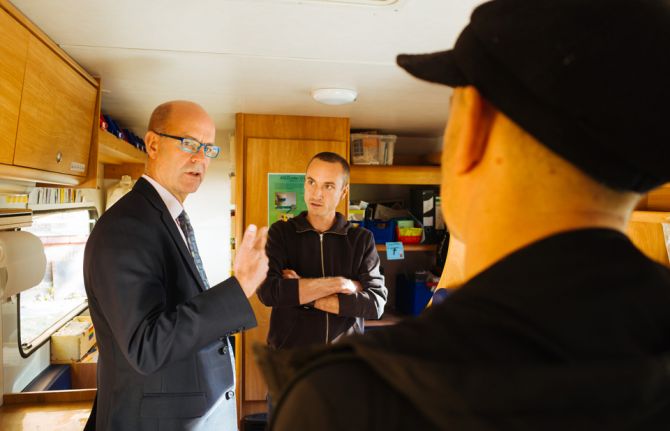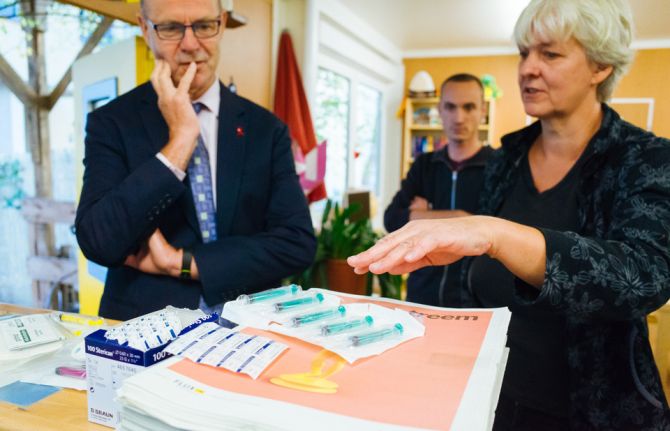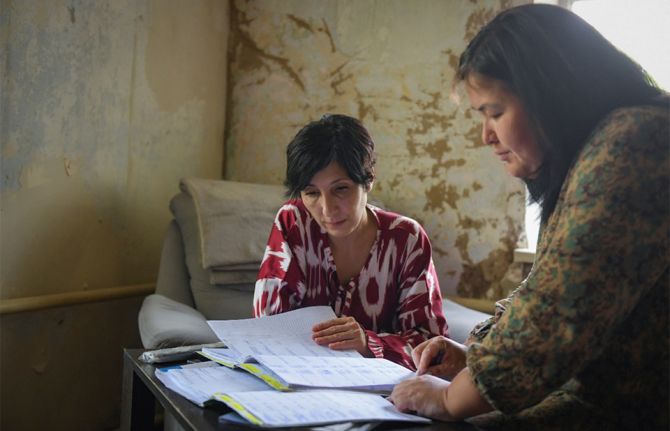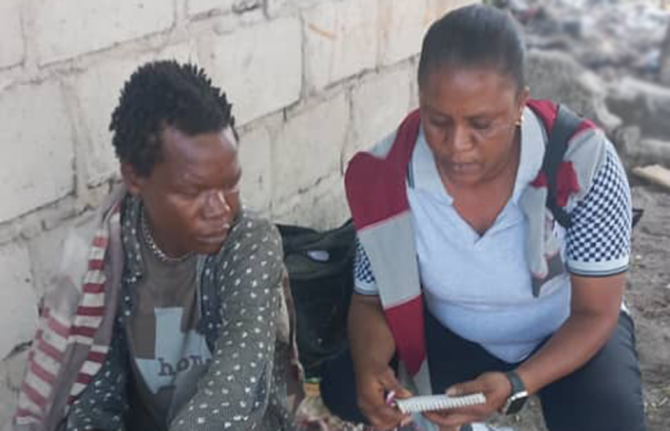



Feature Story
Germany: taking a human-rights based approach to injecting drug use
16 October 2018
16 October 2018 16 October 2018People who inject drugs often have one or more associated health issues. Drug use and mental health issues often coexist and drug use can increase the risk of contracting infections. Among people who inject drugs, for example, the risk of acquiring to HIV is 22 times greater than for people in the general population. People who use drugs are also widely stigmatized and marginalized, putting them out of reach of health and social services.
In line with Germany’s efforts to take a people-centred, human rights-based approach to health, the non-profit organization Fixpunkt has begun offering a safe haven for people who inject drugs. Fixpunkt provides a wide range of services, including support for people who are on opioid substitution therapy, counselling for mental health and social problems, basic health services, sterile injecting equipment and supervised drug consumption rooms and professional assistance in the event of overdose.
Controversial life-savers
For people who inject drugs, supervised drug consumption sites are a lifeline. They are also a critical entry point into the wider health and social support system. Currently, supervised drug consumption sites are available in six of the 15 federal states in Germany. The state of Baden-Württemberg, for example, has just decided to create the legal provisions to allow the facilities and the first supervised consumption room is about to be opened in the city of Karlsruhe.
However, in the nine other federal states legal barriers currently prevent the provision of these potentially life-saving services. “More political and financial support is needed to fulfil the real potential of safe injection sites. For people who use drugs, living on the streets, these are life-saving facilities. They often do not have access to medical, health and other social services. In these facilities they can establish contact and trust and find help to change their situation,” said Astrid Leicht, Director of Fixpunkt.
The Deputy Executive Director, a.i., of UNAIDS visited one of Fixpunkt’s mobile sites on 15 October to see the impact of the services they provide. “This is an important step forwards for Germany. By taking a people-centred approach and ensuring that people who inject drugs have access to harm reduction and other health services, such as safe injection sites, Berlin will be able to stop new HIV infections among people who inject drugs and reduce the harms related to injecting drug use. More projects like Fixpunkt are need to ensure that no one is left behind.” The biggest challenge, he learned, is that there are not enough facilities or resources to provide optimal opening hours or accompanying outreach work within the neighbourhoods and communities.
Sylvia Urban, board member of Aktionsbündnis gegen AIDS and of Deutsche AIDS-Hilfe, said, “The decisions in Baden-Württemberg and Karlsruhe are ground-breaking. We hope that the remaining states and many cities will follow. These facilities save lives and prevent HIV infections. From a public health and HIV prevention perspective, there is no good reason not to provide supervised drug consumption rooms.”
High demand in southern Germany and Bremen
Supervised drug-consumption rooms are desperately needed in, for example, Mannheim, the city with the highest number of drug-related deaths in proportion to inhabitants, as well as in Stuttgart, Munich, Nuremberg, Augsburg and Bremen, which have high numbers of preventable drug-related deaths.
Worrying situation in eastern Europe
UNAIDS and the World Health Organization recognize that supervised drug consumption facilities are a particularly important intervention. Yet, in eastern Europe there are very few facilities of this kind and in some countries, including the Russian Federation, there are virtually no harm reduction services provided at all amid a context of rising new HIV infections.
“Supervised drug-consumption facilities and harm reduction programmes are crucial components of HIV and hepatitis prevention. The tools and interventions to end the epidemics are all available, but many governments prevent their implementation,” said Sylvia Urban, from Deutsche AIDS Hilfe. “Only with services to minimize the negative health impacts of drug use can the HIV epidemic be stopped. In order to achieve this, legal and other barriers, including stigma, need to be removed.”



